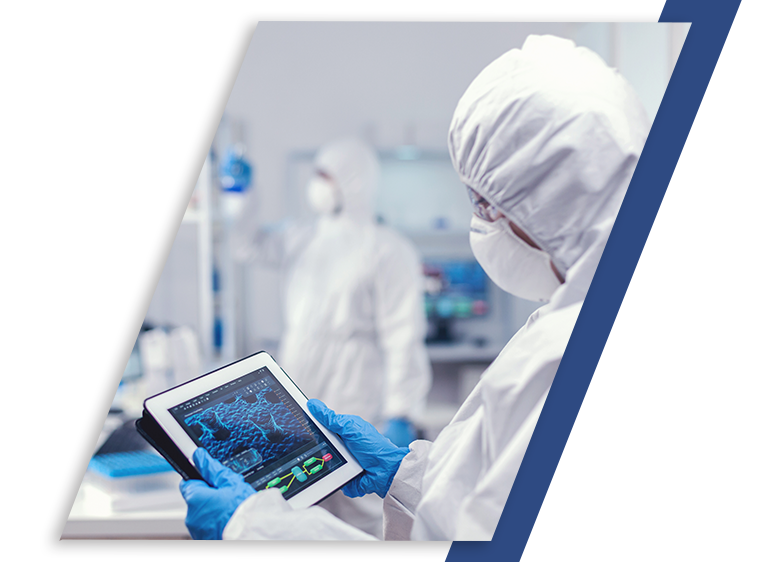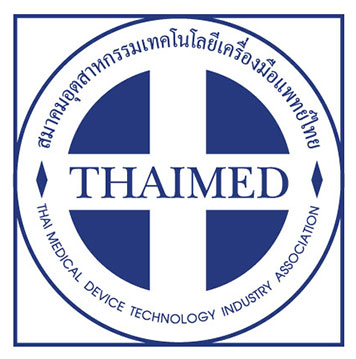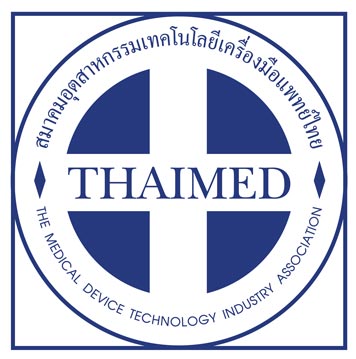History Background
THAIMED was established in 1989 by six founding members and since that time has accumulated a lot of success stories. One such is the establishment of excellent contacts with the MDCD of the Thai FDA thereby enabling THAIMED to provide assistance to members when Free Sales Certificates became a mandatory requirement for the importation of medical devices. Other successes include the lobbying of the Ministry of Finance requesting reductions in import duties and correcting the misclassifications of some medical devices which had led to importers being charged unreasonably high import duties. All of these resulted in health services being made available to the Thai people at lower cost.

Over the past 31 years, THAIMED has built a solid reputation as a smooth-running association that brings together 114 local and international companies linked to the distribution of medical devices in Thailand.
THAIMED is run by a Board of Directors elected by the membership, which serves for a term of two (2) years. Its duties include the establishment of policies and the conducting of the Association’s affairs in line with its objectives and by-laws.
THAIMED is a non-profit organization with no desire to participate in politics. Its main objective is to increase its membership thereby giving it more power to negotiate with the Thai FDA and to represent the industrial sector as a whole. The main policies of THAIMED are:
To create
readiness and cooperation amongst its member companies.
To coordinate
with the government and the private sector to develop the medical device industry.
To support
the government’s policy of opening a free trade area for medical devices in the future, which will undoubtedly give a boost to Thailand’s intention of becoming a medical hub in the region.
Initially the original seven board directors and their secretaries devoted 2 – 4 working days every month to the Association’s business and did all the work themselves in their own offices since, at that time, THAIMED had no offices and no employees. Their particular responsibility then was dealing with the government agencies in the Ministry of Health. Over the succeeding years, the Board of Directors has, with membership approval, been increased to nine Directors and has reorganized the structure of the Association improving its administration to make it more convenient and up-to-date and to keep it in line with changes in global business. Now, THAIMED has its own offices and 4 permanent staff and has, in recent years, established contact with many government and private organizations such as the Ministry of Industry, the Ministry of Labour, the Ministry of Commerce, the Ministry of Foreign Affairs, the Ministry of Science and Technology, the Ministry of Finance, the Medical Council of Thailand, the royal medical colleges, the Private Hospitals Association and 12 private associations related to healthcare products.
THAIMED has now a Board of nine Directors and 2 Sub-committees in different fields which are:
- The Regulatory Affairs Sub-committee (RA Sub-committee)
- The Reimbursement Sub-committee (RIM Sub-committee)
In addition, THAIMED publishes a quarterly e-Newsletter
at its website www.thaimed.co.th, organizes seminars and training sessions for member companies and offers to members and non-members the service of compiling all relevant documents for the approval of a Free Sales Certificate (FSC) at the FDA. It also acts an information centre both about academic matters and its activities with other organizations thus keeping members fully informed and up-to-date. THAIMED has, therefore, grown considerably over the past 23 years both in size and in relevance and providing many benefits to members, not the least of which is that they are now kept fully aware of all policies impacting on their medical device businesses as they arise. Furthermore, any consequent problems and suggested solutions identified by the membership can be presented to the powers that be in a much more neutral way coming from a large and well recognized Association rather than from individual or small groups of interested parties.
THAIMED has always been run and organized in line with its original principles and has attempted, over time, to keep its operation up to date to provide stability and a readiness to take on more duties as these become necessary through changes in economics and through ongoing new technologies reaching Thailand.
THAIMED realizes the importance of economic development and of the responsibilities carried by businesses towards society. When the government promulgates regulations controlling the medical device business, THAIMED will act as a go-between and a coordinator for its member companies and the relevant government agencies.
THAIMED can boast of a number of significant achievements since its inception, such as:
- Involvement in the drafting and revision of many laws of various ministries, government divisions and departments including the drafting of the Medical Device Bill and many Ministerial Announcements over past years.
- Attending many meetings on behalf of the membership covering the development of medical device surveillance and discussions on both domestic and international free trade areas for medical devices.
- Coordinating with both government and private organizations to host international meetings, such as the 2nd Asian Harmonization Workshop Party (AHWP) Meeting, the 3rd APEC-Funded Seminar on Harmonization of Medical Device Regulations, the AHWP Workgroup 01 Meeting and the 3rd ASEAN Consultative Committee for Standards and Quality-Medical Device Product Working Group (ACCSQ-MDPWG) Meeting.
- Being a member of and keeping in contact with international organizations which control the regulatory systems of medical devices, such as AHWP, GHTF, ADVAMED and EUCOMED etc. Through these contacts, THAIMED can now collect and collate many suggestions for regulatory affairs and possesses a strong voice in any negotiations.
As the government is committed to the opening of free trade areas for healthcare products, including medical devices, we may expect it to be quite strict in the control of the medical device industry to ensure its compliance with international standards. This commitment may have a direct effect on the businesses of manufacturers and exporters and an indirect effect on the businesses of importers and distributors; obvious examples of this are the Product Liability Act of the Office of the Consumer Protection Board and the National Health Act of the National Health Commission office. THAIMED, therefore, has a significant role to play in cooperating with its members to improve the quality and standard of their service and management and thereby develop sufficient business competence to handle the ever-changing commercial world of to-day.



